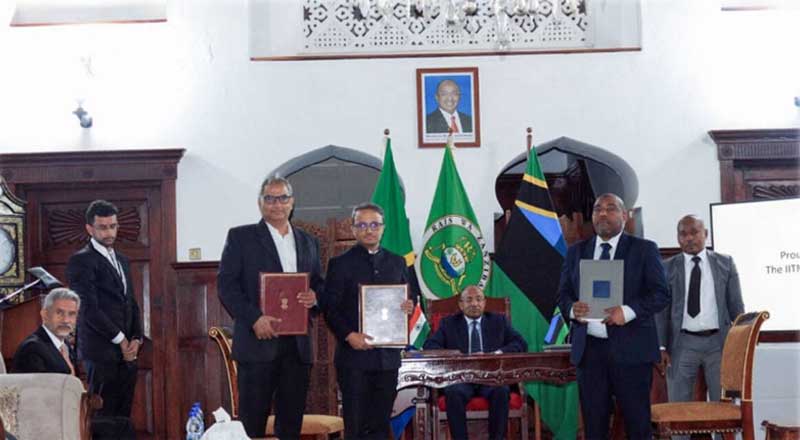 India-Tanzania
India-Tanzania
One cannot help but appreciate the significance of the recent agreement to establish the first overseas campus of the Indian Institute of Technology (IIT) in Tanzania.
This noteworthy venture, a brainchild of External Affairs Minister S Jaishankar, is a testament to the deepening relations between India and Tanzania – a bond that traces its roots back to the days of India’s independence.
Tanzania’s selection for the first international IIT outpost is far from arbitrary. Rather, it underscores Tanzania’s geopolitical significance on the African continent and its historic partnership with India. Despite its close association with China, Tanzania has not shied away from nurturing robust diplomatic and economic ties with India.
A snapshot of this mutual cooperation can be observed in the thriving bilateral trade, which experienced a healthy 40% growth to reach $6.4 billion in the fiscal year 2022-23. Indian investment in Tanzania exceeds $4 billion, highlighting sectors like healthcare, pharmaceuticals, veterinary vaccines, and mining, amongst others. The robust economic synergy is further boosted by a 55,000-strong Indian diaspora, contributing actively to the bilateral relationship.
Yet, the bedrock of this Indo-Tanzanian relationship transcends mere economic cooperation. This shared camaraderie extends into areas like defense and human resource development. Indeed, Tanzania’s Command and Staff College stands as a symbol of military cooperation, and the recurring visits of Indian naval ships underscore this strategic partnership.
However, the true potential of this alliance lies in the people-to-people connections, aptly epitomized by the decision to establish an IIT campus in Zanzibar. This venture resonates with Tanzania’s ambitious plans of bolstering education and scientific research in the country, offering a platform for students from across Africa to gain access to a world-class education. This project takes a step beyond the traditional donor model, shaping a unique partnership between India, Zanzibar, and Tanzania, therefore laying a strong foundation for educational diplomacy.
This initiative also complements India’s previous efforts in Tanzania. Examples include the India-Tanzania Centre of Excellence in Information and Communication Technology established in 2009 and the Solar Mamas programme, which empowered rural women to become solar engineers. Such initiatives have left an indelible mark, enabling Tanzania’s youth to leverage these opportunities for self-development and nation-building.
This new international IIT campus is not only a step towards globalizing Indian education but also a testament to India’s emerging leadership within the G20 and the Global South. It resonates with the recommendations of the 16-member committee of the IIT Council in their 2021 report, suggesting overseas campuses for IITs.
As India forges ahead with its ambitious plan of opening higher educational institutions in Africa’s least developed countries, it not only bolsters India’s international reputation but also reinforces its strategic partnerships. The establishment of the IIT campus in Zanzibar is a prime example of this endeavour, embodying India’s commitment to nurturing its ties with Tanzania and Africa as a whole.
(Image and text credit: Khalsavox.com)
Support Our Journalism
We cannot do without you.. your contribution supports unbiased journalism
IBNS is not driven by any ism- not wokeism, not racism, not skewed secularism, not hyper right-wing or left liberal ideals, nor by any hardline religious beliefs or hyper nationalism. We want to serve you good old objective news, as they are. We do not judge or preach. We let people decide for themselves. We only try to present factual and well-sourced news.







